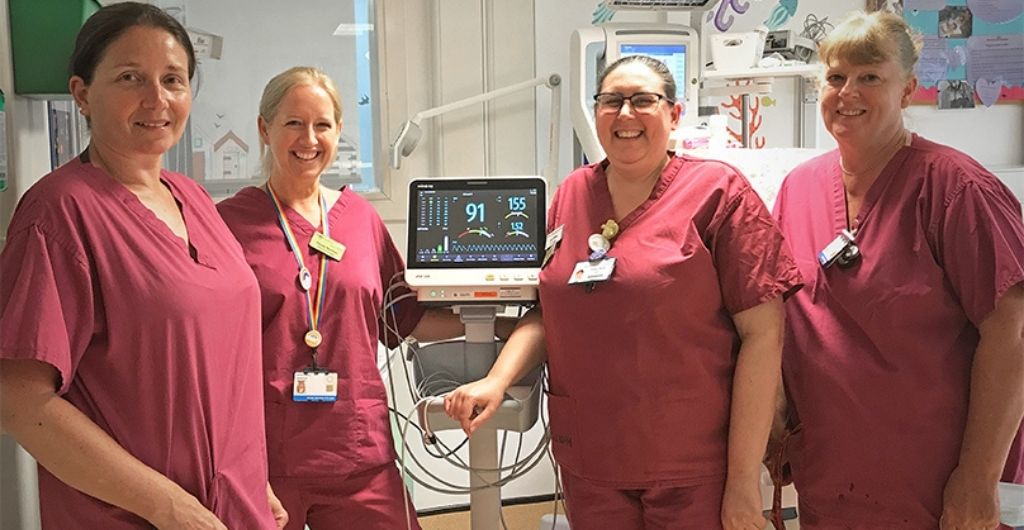
East Kent’s Queen Elizabeth The Queen Mother Hospital (QEQM) has used a specialised dashboard to wean more babies off oxygen, reducing the average length of stay and improving data accuracy for the Trust.
The Special Care Baby Unit (SCBU) at QEQM installed eight new Mindray ePM monitors in June this year, after recording discrepancies in the key SpO2 parameter on its old equipment during patient transfers.
After a successful trial, the unit worked closely with Mindray to develop a specialised goal management tool for oxygen therapy, using the ePM’s configurable neonatal dashboard.
With such vulnerable patients at varying levels of stabilisation, the unit identified the need for more precise individualised targeting. SpO2 target tracking is now defined into precise high and low limits for each baby, through an easy-to-read sliding scale graphic.
The SCBU can now spot trends in patient conditions and employ precision target tracking for longer periods of time. Using the ePM’s extensive data storage capabilities, staff can enter target saturation levels and track SpO2 levels within a selected time duration (up to 48 hours).
As well as monitoring oxygen saturation levels, the ePM devices also track Perfusion Index (PI) for a pulsatile reading that validates the recorded SpO2 data.
When a baby remained on oxygen for an extended period of time, the SCBU would carry out an in-depth study for the affected neonate, which would often have to be repeated for accuracy.
These studies would often last an average of four days and involve posting data to the unit’s sister site for downloading and analysis. This meant the average length of stay for affected babies was eight days, totalling £3,200 per baby.
The new devices have helped generate a 95% reduction in time-consuming sleep studies, delivering an estimated cost saving of £32k per annum for East Kent Hospitals University Foundation Trust.
QEQM performed 22 studies in 2019 but has only carried out one so far in 2020. This sharp decline in studies is a result of the ePM’s specialised neonatal dashboard, as Tracey Twyman, ward manager for the Trust, explained:
“The new neonatal saturation screen has significantly reduced the number of formal sleep studies we are performing. It has enabled us to wean babies from oxygen safely and more effectively and has meant babies do not have to remain in the unit for longer than necessary.”
After seeing the results of the dashboard recognising the software’s potential, the Trust went to on install the neonatal dashboard on all monitors in its HDU.












